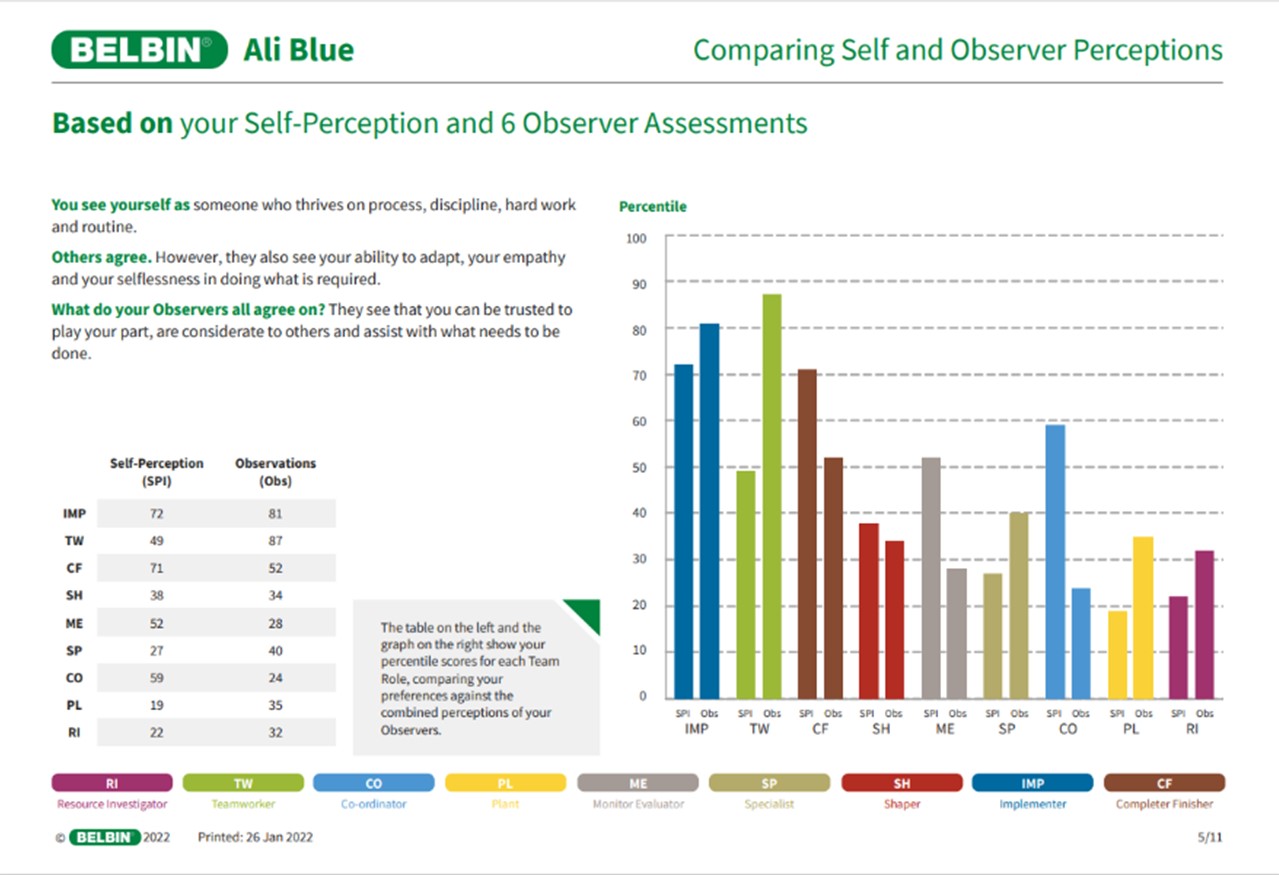Submitted by K.M. Dawson on Wed, 13/09/2023 - 14:30
Team Belbin training
Last week the ARRC team completed a Belbin career development training. We all gathered at the West Hub in Cambridge, somewhat nervously, having completed questionnaires on our perceptions of each other in the workplace. Our interest was both personal (who doesn’t love being profiled by all your colleagues?) and professional (Strand 2 of our study investigates career development tools for postdocs).
Belbin is based around team role development; you get a report on how you function in the team in which you currently work. There are some similarities to other questionnaire based evaluations, such as the MBTI, with the difference being that the evaluation is based on behaviour (not personality) and around both your self-perception and the perceptions of (at least four) others. Belbin was founded in the 1970s and 80s by Dr Meredith Belbin. Our accredited trainer was the lovely Dr Geraint Wyn Story - ‘Gez’.
We started the day with a couple of warm up exercises, to get an idea of what we thought was the aim of our project and some conceptual activities on how behavioural attributes can be viewed as strengths or weakness depending on context, or point of view. Gez provided some excellent nuance, noting that you may take on a role in a new team that you didn’t occupy previously. Conversely, people in your current team may not recognise certain skills that you possess if there isn’t much scope for them in your current role. For example, some PhD and postdoc researchers might have excellent coordination and delegation skills, but their role provides no opportunity to showcase this.
Gez described the 9 team roles which comprise the basis of our reports. We studiously looked at the ground to avoid making eye contact with the people who were strong examples of the behavioural type.
After lunch, we finally got our hands on our reports. You can see from the sample report image below (sourced from the Belbin website) that the bar chart reflects the proportion of each role type you have been assigned. Some people in our team had most of their result loaded in to one or two categories – e.g. a very marked ‘resource investigator’ or a ‘completer finisher’. Others had more spread, or a wider difference between their self-perception and the perception of the group.
The final segment of the day concerned how the team worked together as a whole. We completed a pie-chart style diagram, to see whether (as a team) our roles were disproportionally loaded into a few categories. For example, to function well as a team the theory behind Belbin suggests that you need all (or at least the majority) of these types. If you have no ‘plants’ or ‘resource investigators’ your team may struggle with ideas. If you have no ‘monitor evaluators’ or ‘completer finishers’ you may struggle with quality control or making sure tasks are wrapped up.
Despite having a fairly good spread of roles across our team, the workshop allowed us to see where we could improve and where we may have some gaps that needed to be bridged. We all took some time for reflection after the workshop, to think about how to integrate the feedback into our team structure and dynamic.
From a professional viewpoint, this workshop gave us a great example of how learning more about yourself and your style of working could be useful as a career conversation starter with supervisors, mentors and colleagues. Watch this space for updates on our career workshops in May and June!

